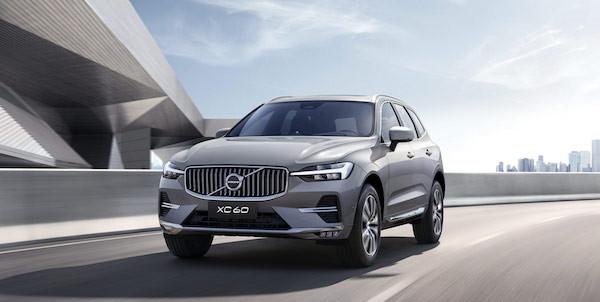Volvo Car Group announced on Jan. 4 that it has hired former Dyson Group executive Jim Rowan as its new CEO to succeed Hakan Samuelsson. Rowan will take up his new role on March 21.
Currently, Rowan is ceo of Ember Technologies, the world's first manufacturer of the smart temperature control cup. During 2017-2020, Rowan served as CEO of Dyson and, prior to that, as CoO of BlackBerry. Samuelsen joined Volvo's board in 2010 and served as CEO of the automaker for nearly 10 years, with his contract set to expire this year. Still, Samuelsen will continue to serve as chairman of Polestar, where Volvo currently holds a 49 percent stake.
It is worth noting that under Rowan's leadership, Dyson tried to enter the electric vehicle industry, but the plan was eventually shelved. Volvo Cars said Rowan's global experience in digitalization, innovation, engineering and supply chain was invaluable to Volvo's strategic objectives.
Volvo's global sustainable development strategy targets show that in 2025, the proportion of pure electric models will reach 50%, and the rest will be hybrid models. In 2030, it will become a pure electric luxury car company, and in 2040, it will strive to become a benchmark enterprise for zero climate load. In addition, all pure electric models will be sold through the direct sales platform. In order to support the electrification transformation, Volvo Cars was officially listed on the Stockholm Exchange in Sweden in the fourth quarter of 2021, raising 25 billion Swedish kronor (about 18.4 billion yuan). According to the prospectus, 30% of this round of fundraising will be used to increase vehicle production capacity, software capabilities and online sales transformation. Samuelson said the IPO will help strengthen the brand and accelerate the transformation strategy, achieving full electrification, creating a direct user model and achieving a higher level of security.

According to the latest data, Volvo Cars' global sales rose by 5.6% to 699,000 units in 2021, of which retail sales in December decreased by 18.1% year-on-year. Volvo Cars has said that due to the shortage of chips, the sales of many main models have been in a tense situation of "one car is difficult to find". Volvo Cars sold 172,000 units in the Chinese market in 2021, an increase of 3.0% compared to 2020.
In terms of the performance of the electric vehicle market, Volvo Cars' electric vehicle sales accounted for 26% of its total global sales in the third quarter of 2021, of which plug-in hybrid vehicles accounted for 22% of total sales, while pure electric vehicles accounted for only 4% of total sales. Volvo Cars launched its first pure electric vehicle XC40 Recharge last year, and the second pure electric car, C40 RECHARGE, also made its debut at the Guangzhou Auto Show at the end of last year. Not long ago, it was reported that Volvo is developing a new entry-level compact pure electric SUV, which will be built based on the Geely Haohan SEA intelligent evolution experience architecture.
From the perspective of the Chinese market, the performance of Volvo electric vehicles is not optimistic at present, and there is still a big gap with the sales of new car-making forces. At the end of last year, Volvo Cars launched the RECHARGE T8 (plug-in hybrid) model direct sale model for users in Shanghai, users are no longer embarrassed by the problem of "different prices in the same city", and can place orders online and offline through volvo Cars' official direct sales website or "Wo World" mini program anytime and anywhere. After changing from wholesale sales to direct sales, the price of Volvo plug-in hybrid models has also been reduced, with the highest price adjustment reaching 135,000 yuan. However, some dealers said that from the perspective of the transaction price, the price has not changed much compared with before.
At present, the overall performance of joint venture brands in the field of electric vehicles is not optimistic, in addition to the recent breakthrough in Volkswagen's pure electric vehicle sales, most of the joint venture brand electric vehicle sales are still relatively sluggish. On the one hand, the transformation of joint venture car companies is slow, and the speed of product iteration has become a key factor in the development of the market; on the other hand, the current new energy vehicles still show a development trend at both ends of the high and low ends, of which small electric vehicles account for a high proportion, while joint venture brands have not been laid out in this field. In the high-end market, the new car-making forces occupy the vast majority of the market share. The industry believes that although the current electric vehicle market still shows a development trend of high and low, with more electric vehicle products, the mid-end market is expected to expand, which will also bring opportunities for the development of joint venture brand electric vehicles.